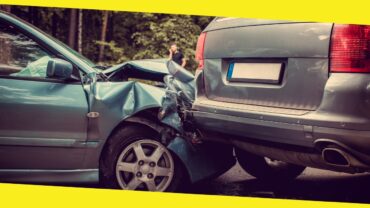Legal 101: What Are the 6 Types of Wrongful Death Cases?
This post was last updated on September 23rd, 2021

Wrongful death is defined as an avoidable fatality. The circumstances of the victim’s death establish if it was an unfortunate accident, or another party failed to provide a proper duty to the victim. Families that prove a wrongful death are entitled to monetary damages. For some, the damages are the lifetime earnings of the victim due to a loss of financial support for a spouse or children. Families starting a claim learn about the six types of wrongful death cases and determine what classification applies to their case. A step that the Hirsch and Lyon Accident Law‘s team recommends everyone to devote enough time to. Mistakes can be costly when it comes to legal issues.
-
Car Accident Cases
DUI is the most common cause of fatal car accidents, but it isn’t the only reason for wrongful death. Proving wrongful death in a car accident case requires the plaintiff to show the driver caused the victim’s death. It becomes a process of elimination of probable reasons for the accident. The cause of the accident implicates the driver by their actions, such as a moving violation. Debris in the roadway or other hazardous condition shifts the blame elsewhere. Ways to substantiate fault in a wrongful death lawsuit linked to a car accident are found at www.bohnlaw.com.
-
Medical Malpractice Cases
Medical malpractice cases lead to wrongful death due to the doctor’s liabilities. Risks that weren’t disclosed prior to surgery or the administration of risky medications constitute a wrongful death if the patient dies. Doctors are liable if they failed to treat the patient appropriately or didn’t diagnose the patient at a treatable stage of a fatal condition, too.
In the cases, the doctor faces more than just a monetary award for economic losses. The court imposes punitive damage to punish the doctor for their failures, and some doctors lose their medical licenses altogether.
-
Product Liabilities Cases
Manufacturers are required by federal laws to correct flaws or defects in products before releasing them to the public. The only exception is when the product is known to be toxic and cause an injury under specific circumstances, such as pesticides and chemicals.
The manufacturers affix a warning label with explicit instructions for how to use the product according to federal regulations. In a wrongful death case involving product liabilities, the plaintiff shows the manufacturer was aware of the defect or danger and didn’t provide a warning and caused the victim’s injuries leading to their death.
-
Work-Related Accident Cases
OSHA violations often lead to worker fatalities. The families of workers file wrongful death lawsuits for occupational diseases and machinery-related accidents frequently. Mesothelioma is still a consistent cause of worker-related fatalities. Unsafe working conditions, including faulty equipment, slip, and fall hazards, and mold or other dangerous substances in ventilation systems increase the odds of a fatality.
-
Commercial Trucking Accident Cases
Commercial trucking accident cases are caused by exhausted or impaired driving. The Federal Motor Carrier Safety Administration requires all drivers to rest for eight hours after a 12-to-14 hour driving schedule. Logs are used to record the driver’s daily mileage.
Regulations prohibit the use of stimulants, controlled substances, and alcohol while operating commercial trucks. The federal laws require the drivers to stop at weigh stations for evaluations of their loads for preventing accidents. Further probabilities causing commercial truck accidents include mechanical failures, faulty parts, and moving violations.
-
Pedestrian Accident Cases
Pedestrian fatalities are caused by moving violations, such as speeding, failing to yield the right of way, and failing to signal when turning. DUI and distracted driving are causes for the deaths, too. Proving the driver’s liability requires law enforcement to investigate the accident and create an accident report showing fault. According to ABC News, the most recent statistics show that nearly 20% of pedestrian fatalities were caused by hit and run accidents.
Wrongful death lawsuits require the plaintiff’s case to connect the defendant’s actions or negligence to the victim’s injuries. The cases aren’t restricted to criminal offences only. Several personal injury-related circumstances lead to an avoidable fatality. Medical records and forensic pathology tests substantiate the victim’s cause of death and connect the dots. Families who prove their case successfully receive pecuniary damages in wrongful death lawsuits.
Most Inside
Most Inside offers high-quality recommendations and valuable updates to enhance all aspects of your life, providing premium guidance and enriching experiences.




